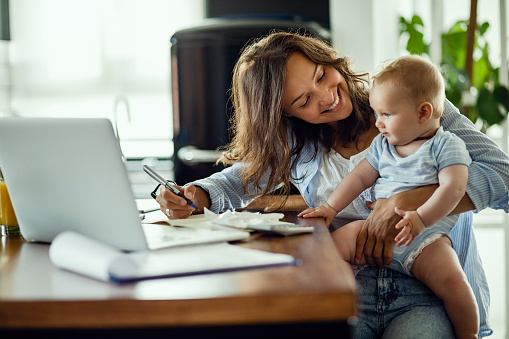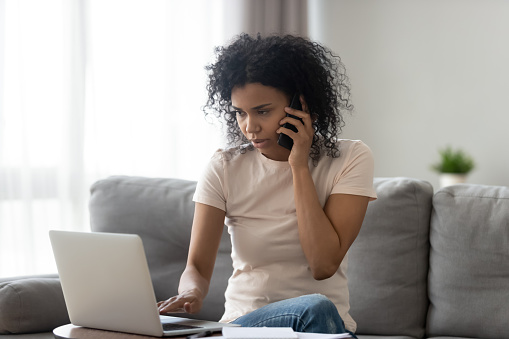Buy A Home Solo: Is It A Good Move For You?

Buying a home is a big step, one that can feel even bigger when you’re thinking of doing it on your own. "Is it a good idea to buy a home solo?" is a question many young people ask as they weigh the pros and cons of homeownership. If you're a Millennial or Gen Z considering this significant move, here are some insights to help guide you through your decision-making process.
First, consider your financial stability. One of the biggest factors in deciding to buy a home solo is understanding if you’re financially prepared. This includes having a stable income, solid cash reserves, good credit, and low debt. These elements are crucial in proving to lenders that you are a strong candidate for a home loan AND making sure buying a house doesn't quickly put you in freak out mode because you weren't really ready for the financial responsibility.
Speaking of home loans, you might wonder, "What is a home loan?" Simply put, it’s a loan given by a bank or another financial institution that enables you to purchase a house. The house itself serves as collateral for the loan, which you will pay back over time, typically with interest.
Check Your Credit!
Next, you should check your credit score. This is critical because your credit score impacts the interest rate you'll be offered on a home loan and whether you'll even be approved for one. A higher score will lead to more favorable loan terms. If you have limited or poor credit, start by paying all your bills on time. You'll be surprised how this responsible financial behavior can improve your credit score quickly!
Can You Get A Mortgage?
To answer this, you need to apply for pre-approval with a bank or mortgage lender, which will give you a better idea of the loan amount you might qualify for. This is an essential step along the path to homeownership, as it sets realistic expectations regarding the budget for your potential home. But don't be pressured by the lender into moving forward right away. Say you just want to get an idea of what you qualify for...you're not ready to buy just yet.
Think About the Future - (And Not Just the Fun Stuff)!
Consider the additional costs of owning a home, especially . Beyond just the mortgage payment, homeowners also have to pay for property taxes, home insurance, maintenance for the home and yard, appliances if you don't already own a refrigerator and washer/dryer, and possibly, homeowners association fees. Ensure you have enough in your budget to cover all these costs consistently.
Think about the future. Buying a home is not just a financial investment but also a commitment to a particular location. Consider your career stability and whether you might have to move for job opportunities before deciding to buy a home.

This Is A BIG Decision - Don't Rush Into It
Educate yourself about the home buying process. Since many young buyers feel inexperienced, taking classes on home buying or consulting with a financial advisor can provide valuable guidance and boost your confidence in making this big decision.
Look into different types of properties. As a solo homebuyer, you might find a condominium, townhome or a small single-family home more manageable than a larger property. These options can also be more budget-friendly.
Explore neighborhood options carefully: think about safety, proximity to work, amenities, schools (even if you don't have school-age children, poor schools negatively affect property values and vice versa) and potential property value growth. A good location not only affects your quality of life but can also impact the resale value of your home. Don't just go to the property at night and on the weekend. You need a good idea of what traffic is like from the potential home to your place of work.
Consider the emotional aspects of buying a home alone. While it can be incredibly empowering to own a home by yourself, it also means dealing with all the responsibilities and expenses, like repairs and maintenance, on your own.
Don’t rush your decision. Take your time exploring different homes and neighborhoods, and reflect carefully on each option. Rushing into a decision this big could lead to regret later on.

Other Things to Consider....
Get a reliable real estate agent. A good agent who understands your needs and is experienced in helping solo buyers can make a huge difference. They can guide you through the process and help negotiate deals on your behalf.
Build an emergency fund. Aside from your savings for buying the home, it's wise to have an emergency fund that covers at least 6 months of living expenses. This fund can be a lifesaver when unexpected costs pop up.
Stay realistic with your expectations. When you’re buying alone, you might not be able to afford your dream home immediately. Consider what you can afford now and what you might be able to upgrade to later.
Look for first-time buyer programs. Many governments offer programs that can help first-time buyers with down payments, closing costs, or preferable loan terms. Need a mortgage with a smaller downpayment? Click here.
Understand the risk of property value fluctuations. The real estate market can go up or down, and it's important to recognize that the value of your new home could change.
Don't underestimate the paperwork. Buying a home involves a lot of documentation, from loan applications to property deeds. Prepare yourself to handle or seek help managing this extensive paperwork.
As You Prepare To Buy A Home Solo....

Continuously educate yourself on property ownership. Learn about property taxes, basic home repair, and other key aspects of owning a home.
Check for potential tax benefits. Homeownership can bring some tax deductions, such as mortgage interest and property taxes, which can help financially.
Avoid debt accumulation. As you prepare to buy a home, avoid taking on new large debts, like car loans or large credit card balances, which could affect your mortgage application.
Stay patient with the process. From finding the right property to closing the deal, buying a home can take several months, or even longer.
Seek support from friends or family. Even if you're buying alone, having support can make the process less intimidating.
Reflect on your long-term goals. Ensure that buying a home aligns with your personal and career goals for the next few years.
Don’t rely solely on online resources. While useful, it’s also important to talk directly with professionals like real estate agents, mortgage lenders, and lawyers.
Prepare for moving. Moving pretty much sucks. Budget for moving costs and prepare for the physical and emotional work involved. Price a mover or two. You are going to be surprised how much it costs to pay someone to do everything.
Start early by purging things you don't need: donate or recycle/throw away. Organize things you do want to take with you. Doing your own packing and moving will save a ton, but do you have friends or family that will actually help when the time comes?
Be cautious about overextending financially. Make sure that your home purchase doesn’t stretch your budget too thin, compromising other financial priorities like retirement savings.
Continue learning and adapting. Owning a home is a continuous learning process, filled with new challenges and opportunities.
Make your home your own. One of the joys of homeownership is the ability to customize your space. Enjoy making your house a home that reflects your personal style.
Stay informed about the real estate market after you buy. Keeping an eye on market trends can help you understand when might be a good time to sell or buy another property.
Finally, remember that buying a home solo can foster a sense of independence and financial growth. Choose the right home, and it will be a path to greater prosperity, since their home is most people's main source of wealth. While it comes with its challenges, the benefits of owning a home can make this journey incredibly rewarding.
Home | Privacy Policy | Contact | About Me
Copyright © 2022- freecredithq.com All rights reserved